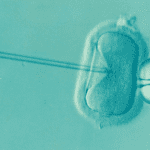
First, some personal context: I breastfed my three boys. I wasn’t very good at it. For the first, I needed help from a lactation consultant because of a “bad latch.” The second took to nursing much more readily, but then experienced and caused a great deal of unhappiness when it was time for him to go to daycare (or just be taken care of by dad) and he wouldn’t take a bottle. And all three of them needed significant supplementing starting at about the three month marker, and I tried no end of herbal supplements upon reading, “every woman can breastfeed and will always have enough supply if she just tries hard enough.” I was also clumsy about it; those photos of women latching the baby on and then going about their day? I could never do anything remotely like that. But I soldiered on, using the hospital-grade pump that was provided at work at the time, and made it ’til about the 6 or 7 month point before the combination seemed a bit pointless and we switched entirely to bottles.
After all, the list of benefits touted by breastfeeding advocates seemed endless. Besides which, it was a way of demonstrating that I was a Good Mom even though I didn’t feel all that maternal and wasn’t the sort to coo at the baby all day long. And it did come in handy, for the first couple months of babyhood for #3, since we didn’t need to worry about baby bottles and the like for that time period when we were still in Germany (he was 2 months old when we returned to the U.S.).
Would I have made the same decisions had the reports we now have, that studies showing breastfed babies are smarter, are not appropriately random, because women who make the effort to breastfeed are also likely to have smarter kids for any number of other reasons, so we’re looking at more of a correlation than a causation, that the only truly statistically valid studies show virtually no effect, been available then? It’s hard to say — and it’s likewise hard to judge from a distance how different new motherhood would have been if I had been bottlefeeding, and if I’d genuinely been able to do without feeling just a bit like a failure.
Which means I’m neither an anti-breastfeeder nor an anti-bottlefeeder, but the outcome of 20 years of hindsight is more of a belief that there’s no one right answer for every woman. (Further reading: “Are there downsides to ‘breast is best’?” from BBC.com; “The Case Against Breast-Feeding” at The Atlantic — which is more of a case against near-compulsory breastfeeding.) Breastfeeding is great for many women. Formula is expensive. Many of the reasons women have elected not to breastfeed — that it’s “icky” or that breasts are reserved for sex — are dumb. But continuing to breastfeed as a working mother, by pumping, is not easy and involves its own time and effort, even though through the magic of the Affordable Care Act, breast pumps are now “free”, or, that is, “included in the price” of health insurance — not to mention the difficulties many women experience and find trivialized by Experts.
And that’s the context that I bring to the New York Times‘ report, as summarized in the National Review for your nonpaywalled convenience:
World health officials were reportedly flabbergasted when the U.S. delegation to the World Health Assembly opposed what was expected to be a noncontroversial measure to promote breastfeeding.
U.S. diplomats told the Geneva conference of hundreds of international officials that the language of the resolution must be softened, which encouraged governments to “protect, promote and support breast-feeding.”
The New York Times reported the U.S. officials were catering to the interests of infant formula manufacturing companies, a $70 billion industry, who were also at Geneva.
Now, the Times article itself says that the US denies this was its motivation, and that they were more concerned about ensuring that women had the right to make their own choices on the matter. I did a bit more digging into exactly what the WHO is up to, which has to do with a resolution adopted by the World Health Assembly in May. This is part of an overall focus on increasing rates of breastfeeding to improve babies’ health, including a recommendation to breastfeed until age 2, and the International Code of Marketing of Breast-milk Substitutes, which stipulates that adopting countries should prohibit formula manufactures from engaging in any sort of marketing of their products — no giving away of samples, no advertising, not even any images on the container which “may idealize the use of breast-milk substitutes.” And, in fact, if you visit a website, say, for Aptamil, a formula company in the UK, you need to click “continue” after a warning box:
By clicking the continue button, you will be able to view information about Aptamil infant milks and other products. If you choose to proceed, you are accepting that Aptaclub is supplying this information at your individual request for information purposes. Please consult a healthcare professional to make an informed choice on feeding your baby milks & weaning onto solid foods.
Breastfeeding is best for babies and provides many benefits. It is important that, in preparation for and during breastfeeding, you eat a healthy, balanced diet. Combined breast and bottle feeding in the first weeks of life may reduce the supply of your own breast milk, and reversing the decision not to breastfeed is difficult. The social and financial implications of using an infant milk should be considered. Improper use of an infant milk or inappropriate foods or feeding methods may present a health hazard. If you use an infant milk, you should follow manufacturer’s instructions for use carefully – failure to follow the instructions may make your baby ill.
(One wonders what the “social implications” of using formula are, but this seems to come straight from the Code, and really seems to mean that it’s bad for society to fail to promote breastfeeding sufficiently.)
So this isn’t just about “misinformation” but treating formula as more on-par with tobacco in its need to be regulated.
And here’s another bit of information: the World Health Organization’s brochure on bottle-feeding outlines a 12-step process for preparing formula, including sterilizing the bottle, disinfecting the counter, boiling water and mixing the formula before it’s cooled, then cooling with ice water. The skeptic in me says that this is intended to deter parents from choosing to bottle-feed.
And, knowing that the UN includes plenty of countries which care much less about individual autonomy than the United States, it seems very likely that various such countries might choose to implement these guidelines and make progress towards these goals in much more authoritarian ways, by requiring some determination of “medical necessity” before a woman is allowed to purchase formula, for example.
Having said that, I get that the concerns in modern developed countries are different than those in developing countries, and I know that historically there have been issues with formula companies marketing to poor women who then discover that they cannot afford to continue buying sufficient amounts of formula to feed their babies, or do not have access to clean water to mix the formula with (though a skeptical twitter user, Suzanne Barston, complains that the WHO is “putting breastfeeding ahead of bodily autonomy, putting [the] onus of infant health on women rather than poverty, disease, [and] poor sanitation”).
But what I’m seeing online is not that formula manufacturers are marketing to poor Third World women and deceiving them to believe that it’s better to give them formula than breastfeed; instead, DW reports that, according to the UN, women in the developing world are more likely, rather than less likely, to breastfeed, and that their recommendations were three-fold:
UNICEF found the reasons for not breastfeeding, or not nursing for long, vary, but it stresses that granting paid parental leave, the right to breastfeed in the workplace and restrictions on promoting infant formula as “critical.”
And campaigners in favor of increased breastfeeding rates, especially increased rates of exclusive breastfeeding at 6 months (which, again, in my case would have meant starving babies or a milk bank, hardly necessary for a healthy baby), point to a Lancet study claiming this would save 800,000 babies’ lives worldwide, which itself has gotten pushback (e.g., here and here – a site which also has a review of the research and commentary on the current news as well) as well.
But I’ll stop here because I can’t claim to be expert enough on the particulars of infant mortality in the Third World and the extent to which breastfeeding my remedy it, or, on the other hand, whether a standard of toddler nursing is simply not realistic among factory workers.
Image: By Carin Araujo, http://www.prtc.net/~carin (Stock.xchng #197853) [Copyrighted free use], via Wikimedia Commons













